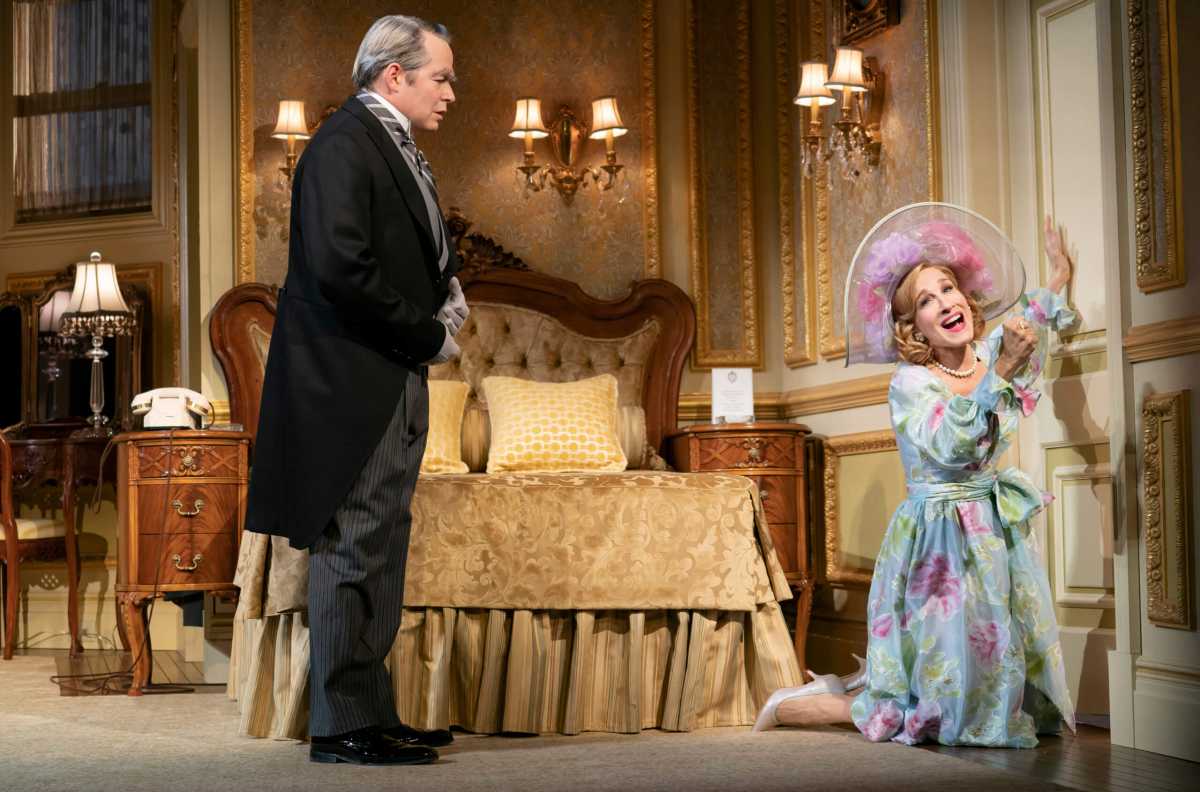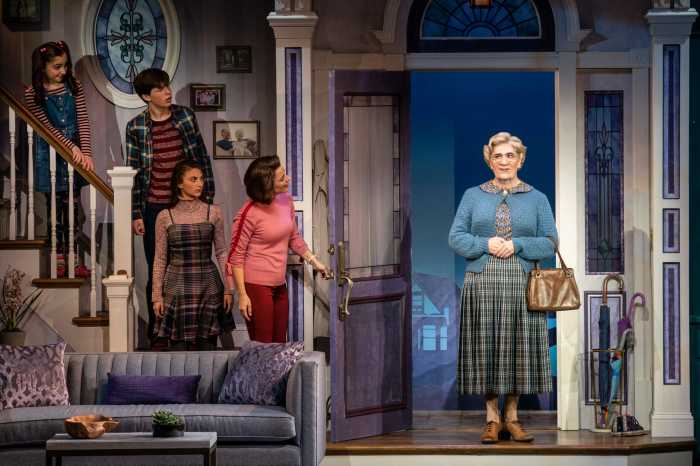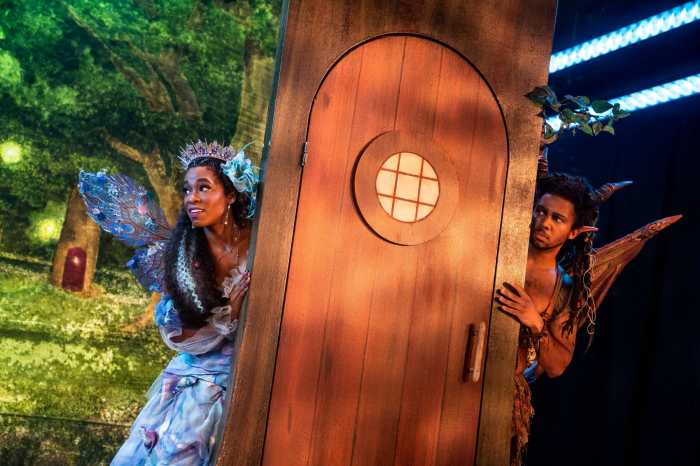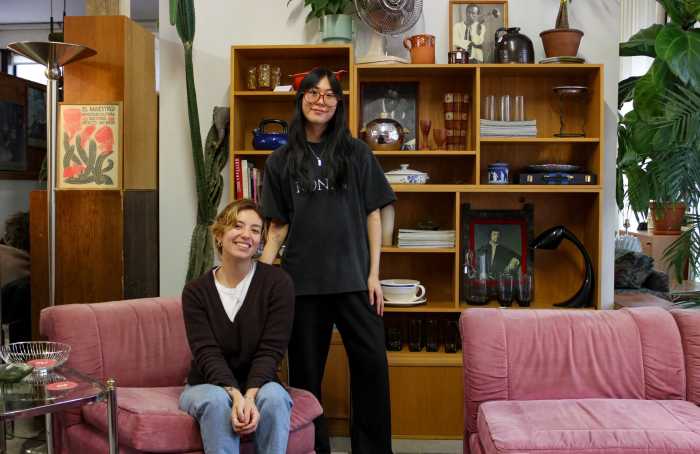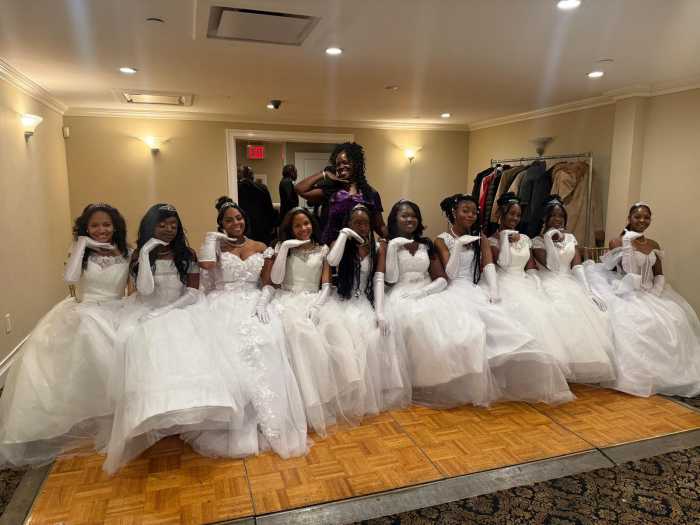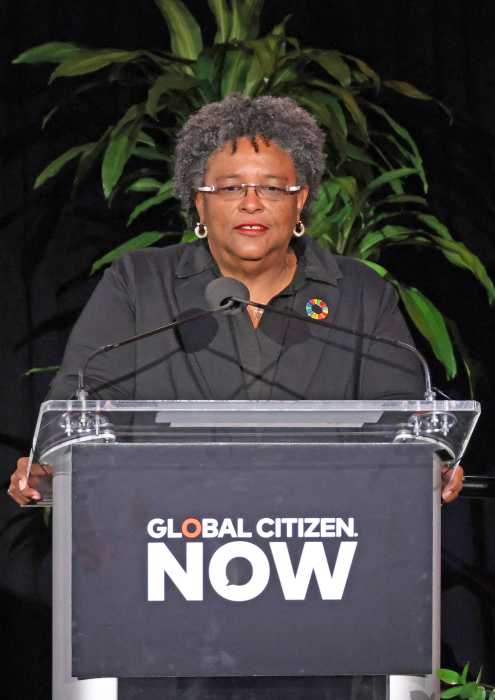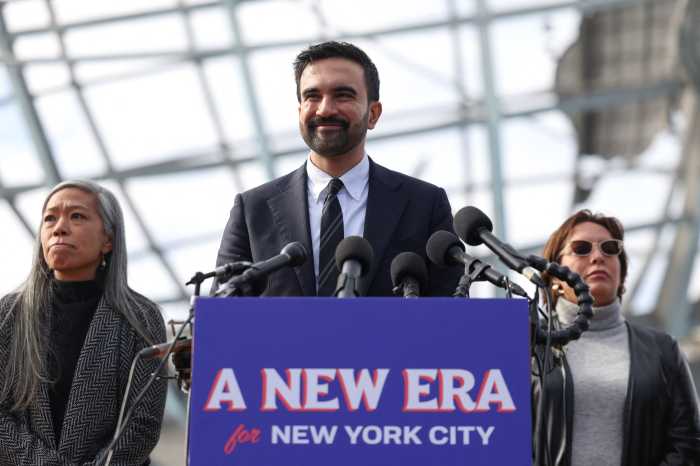The COVID-19-delayed production of “Plaza Suite” finally arrived on Broadway — and then it shut right back down. But until that point, it was as bright, colorful and welcome as the long-promised New York spring. Neil Simon’s 1968 comedy tells three stories about couples who check in to Suite 719 at the Plaza Hotel.
Simon has come in for a lot of criticism over the years as being trite, obvious, or doing anything for a joke. In his book, “The Season,” William Goldman described Simon’s writing as “skillful.” Not “good,” he adds, but “skillful.” Still, Simon is undeniably a crowd pleaser, who has had more hits than any other playwright of the 20th Century — a fact brought home by the posters decorating the lobby of the Hudson Theater.
However, Simon’s power is that if one looks below the jokes, there is a lot of real humanity in his characters. Sure, he blows everything up and does a lot to get a gag to land, but they do land because he also shows us the hearts of his characters.
In the first of the pieces, “Visitor from Mamaroneck,” Karen Nash is desperate to recapture the romance with her husband Sam by booking the suite where they spent their wedding night. It doesn’t go well, and it is the darkest of the three pieces. Both Karen and Sam are lost after 23 or 24 years of marriage, and while their lives look good, their souls are crumbling, perhaps past the point of repair.
In the second act, “Visitor from Hollywood,” the successful producer Jesse Kiplinger has booked the suite and gets a visit from his high school sweetheart, Muriel. Jesse left Tenafly, New Jersey for Hollywood and the movie business while Muriel remained home and got married. The piece is a drawn out and clumsy seduction, and as their lives unfold, it seems each appears to want what the other one has, but can’t quite find the words to say it.
The final act, “Visitor from Forest Hills,” places Norma and Ron Hubley in the suite as they try to convince their daughter Mimsey to come out of the bathroom and go get married downstairs, where everyone is waiting. It prompts a re-examination of their lives and parenting.
The essential link between all these stories — which run the gamut from the serious to the seriously silly — is that for each of the characters, life has not turned out quite as they expected or wanted it to. It is, on many levels, a comedy of abandoned dreams. It was especially relevant in the cultural upheaval of the 1960s, but it certainly resonates today.
The three couples are played by Sarah Jessica Parker and Matthew Broderick. Famously a married couple in real life, they emerge from this production as comic royalty on a plane with Lucille Ball and Desi Arnaz. Parker has the showier roles and fills them beautifully. She is fully convincing and distinctly different in each: a disappointed wife, manic, star-struck woman who has stalked her old beau through fan magazines, and she is a frantic mother. She is brilliant and fearless with the physical comedy, and her timing is impeccable. In the first act, Broderick has a more subdued character but embodies the confusion of a lost man. In the second, he gets to play more broadly as a parody of Hollywood and inept lothario, and by the third, as the father of the bride, he achieves a comic precision that cements his performance as among the best at hilariously underplayed comedy. (Those old enough to remember will recall the genius of Tim Conway from the “Carol Burnet Show.”)
As terrific as Parker and Broderick are together — and as much fun as they are obviously having — the spot-on direction of John Benjamin Hickey is critical to the success of this piece. He adroitly manages the varying tonalities between the three acts so the evening feels cohesive, and Hickey’s flair for the varying styles of comedy required is remarkable. Most importantly, though, he never loses sight of the real people beneath the comic situations, however, absurd, which, as noted above, is the element that makes Simon’s comedy work.
John Lee Beatty has reproduced the Plaza in meticulous and gorgeous detail. Jane Greenwood’s costumes evoke the period, and each is perfect for the character. Notably, Parker’s second act dress is a take on a Pucci print of the period and is an inside joke with the script. As with Hickey’s work, Greenwood knows these characters so well that even comic excesses make sense, as do Tom Watson’s fantastic hair and wig designs. Brian MacDevitt’s lighting is excellent, particularly as we see the change of time and season in the suite.
Seeing “Plaza Suite,” one is certainly reminded of the Broadway of a different time. This production captures the legacy while delivering endearing, poignant and, of course, outrageously funny entertainment, for which one hopes there will always be a welcoming vacancy on Broadway.
“PLAZA SUITE” | Hudson Theater | 141 West 44th Street | Tues., Thurs. 7 p.m.; Weds., Fri., Sat 8 p.m.; Weds., Sat. 2 p.m.; Sun. 3 p.m. | thehudsonbroadway.com or 855-801-5876 | 2 hours 35 mins, 1 intermission, 1 pause

